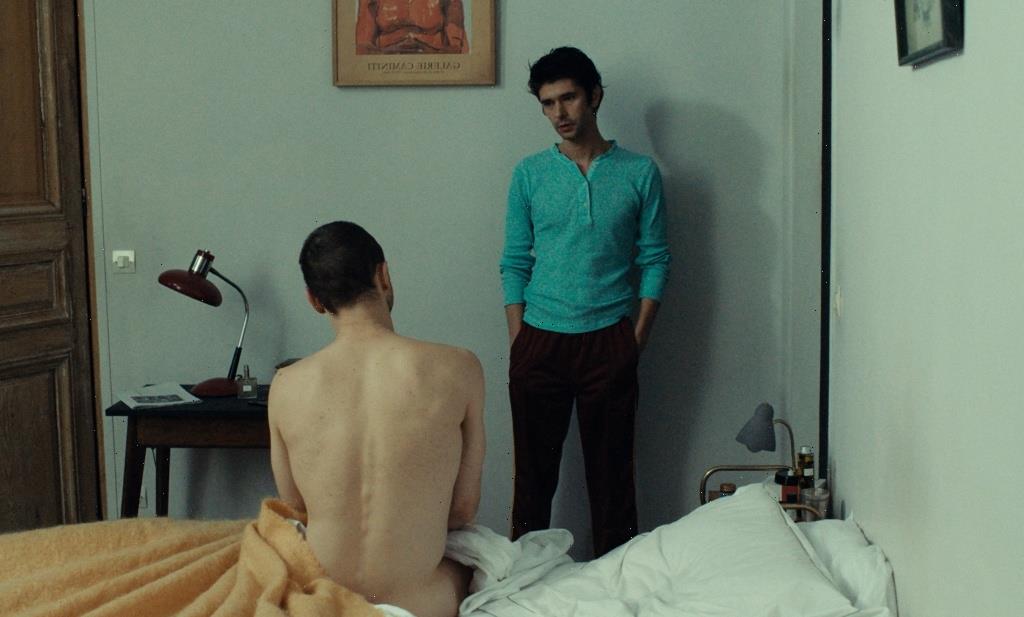Ira Sachs doesn’t seem like the type of person who would direct a sexually-charged drama. He’s soft-spoken, bespectacled, a tad egghead-ish (he references a dizzying array of European films and filmmakers in a way that would confuse even the most hardened Criterion Channel watcher).
And yet Sachs has done just that with “Passages,” the story of a Tomas, a filmmaker played to vulpine perfection by Franz Rogowoski, who atomizes his marriage to Martin (Ben Whishaw) in order to engage in a torrid affair with Agathe (Adèle Exarchopoulos). But Tomas’ ravenous desire to have the things he does not soon blows that relationship up, too. Sachs, the acclaimed filmmaker behind “Love Is Strange” and “Little Men,” says he puts himself into all of his movies, so is the swaggering Tomas really his cinematic alter-ego?
“Someone very close to me once described me as a wolf in sheep’s clothing,” says Sachs, seeming rather sheepish about that admission. “And what I kept asking with Franz was: Is Tomas a wolf in sheep’s clothing or is he a sheep in wolf’s clothing?”
Audiences at Sundance, where the film debuts on Jan. 23, may struggle to answer that question, as well. Tomas is alternately attractive and repulsive; he seems obsessed with establishing connections and then breaking them in spectacular fashion once they have been forged. For Sachs, “Passages” also fulfilled his desire to get back behind the camera after a prolonged absence from moviemaking after COVID shut down productions and the world went to, well, hell.
“After many months in the pandemic, one of the things that I missed the most in cinema, as well as in life, was a certain amount of intimacy,” says Sachs. “I really wanted to make an intimate film, focusing on individuals and characters and their relationships in a way that kind of had the tension of this time, meaning that no one is safe, no one is secure, everyone is on edge.”
Charting the rise and fall of Tomas’ relationships also meant choreographing several sexually explicit scenes.
“I’m not comfortable directing sex in film,” Sachs admits. “It’s challenging. I’m a modest person in lots of ways, but I believe for the story that those scenes are really significant. They change the feeling for the audience about what’s at stake, because they remind people there’s also physical things going on with these three characters who are in different relationships with different genders.”
One sex sequence between Whishaw and Rogowoski also allowed Sachs to challenge viewers in different ways, he says.
“It was important to me not to internalize the culture’s uncomfortableness with human bodies and gay men,” he says. “It’s also pretty beautiful. The way that it is shot is not unaesthetic. There’s a very relaxed nature to how this film is told and it seems very casual and yet it’s not casual at all. Sometimes it’s important to kind of be a little harder and to wake people up.”
Sachs says that the movie shares certain similarities with the rest of his work, because it is about a transitional moment in its characters’ lives. Tomas and Martin’s marriage has stalled, Agathe is looking for something more stable with Tomas than a one-night stand.
“I think it’s a film about middles,” says Sachs. “In some ways all of my films could be called ‘Passages.’ There’s no beginning and there’s no ending. All of these actors and these characters are 20 years younger than me. That’s significant. They are people at a point in their life in which everything might change in a moment.”
In works like “Little Men” and “Love Is Strange,” which both feature drawn-out battles in searching for apartments, Sachs has shown a great interest in where his characters live. “Passages,” which features lengthy discussions of what to do about a weekend getaway cottage and the nuances of returning one’s keys after a relationship has fizzled, also focuses on real estate.
“You can’t separate character from economics,” says Sachs. “Economics are revealed in lots of different ways in a film, but one of the ways is where people live and what their homes look like. There’s nothing more telling than real estate. You either have it or you don’t and what does it give a person in our culture to have certain advantages which come with space and wealth and privilege?”
For Sachs, that question is also a deeply personal one.
“All my films in some ways are about men doing bad things or men behaving badly,” he says. “And that comes from a certain questioning about my own place in the world, which is both active because I make films about it, and passive, because I enjoy my place in the world. The contradiction between those two things is interesting to me.”
Read More About:
Source: Read Full Article
